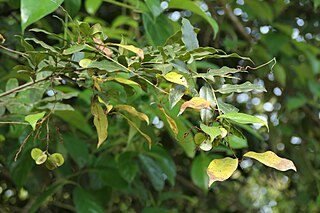
Dioscorea oppositifolia is a type of yam (Dioscorea) native to Myanmar (Burma) and to the Indian Subcontinent.

Hypena is a genus of moths in the family Erebidae. It was first described by Franz von Paula Schrank in 1802. These non-migratory moths overwinter as pupae and almost never estivate as adults.
Apiconoma is a genus of moths in the family Erebidae. The genus was erected by Francis Walker in 1854.

Cosmosoma is a genus of tiger moths in the subfamily Arctiinae. The genus was erected by Jacob Hübner in 1823.

Cyana is a genus of moths in the family Erebidae. Species are well distributed in Africa, Madagascar, China, India, Sri Lanka, Myanmar, Sumatra, Java and Borneo. The genus was erected by Francis Walker in 1854.
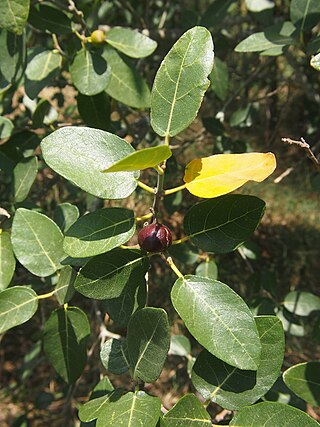
Ficus opposita is one of several fig species commonly known as sandpaper figs. It is native to the Northern Territory and Queensland in Australia.Other common names include sweet sandpaper fig, sweet fig and the ambiguous "figwood" and "watery fig".
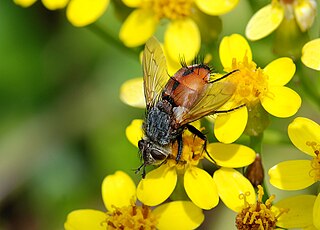
Tachina is a genus of large flies in the family Tachinidae. There are approximately 600 species worldwide. Most have larvae that are parasitoids of lepidopteran caterpillars.

Argyria is a genus of moths of the family Crambidae. The genus was described by Jacob Hübner in 1818.

Glyphodes is a genus of moths of the family Crambidae described by Achille Guenée in 1854.

Feliniopsis is a genus of moths of the family Noctuidae.
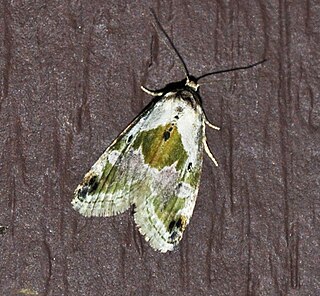
Maliattha is a genus of moths of the family Noctuidae first described by Francis Walker in 1863.
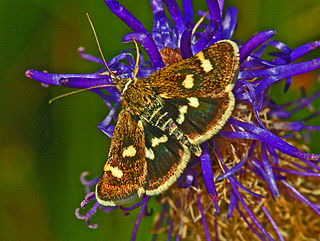
Odontiinae is a subfamily of moths of the family Crambidae. The subfamily was described by Achille Guenée in 1854.

Xyleutes is a genus of moths belonging to the family Cossidae and typical of the tribe Xyleutini.
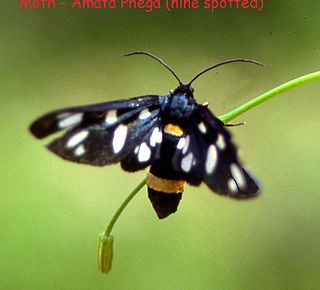
The Syntomini are a tribe of moths in the family Erebidae. The tribe was erected by Gottlieb August Wilhelm Herrich-Schäffer in 1846.
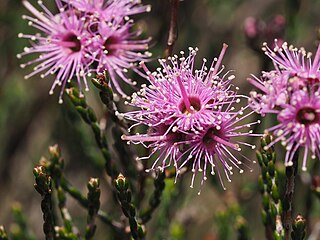
Kunzea opposita is a plant in the myrtle family, Myrtaceae and is endemic to eastern Australia. It is a spindly shrub which has small leaves arranged in opposite pairs, and pink flowers with five petals and many stamens, the stamens much longer than the petals. It usually grows in woodland or on exposed cliffs.
Feliniopsis opposita is a moth of the family Noctuidae first described by Francis Walker in 1865. It is found in Kenya, Somalia, Sri Lanka and India.

Margaroniini is a tribe of the species-rich subfamily Spilomelinae in the pyraloid moth family Crambidae. The tribe was erected by Charles Swinhoe and Everard Charles Cotes in 1889, originally as family Margaronidae.
Stomatopora is a genus of bryozoans belonging to the family Stomatoporidae.

Neactina is a genus of flies in the family Stratiomyidae.















